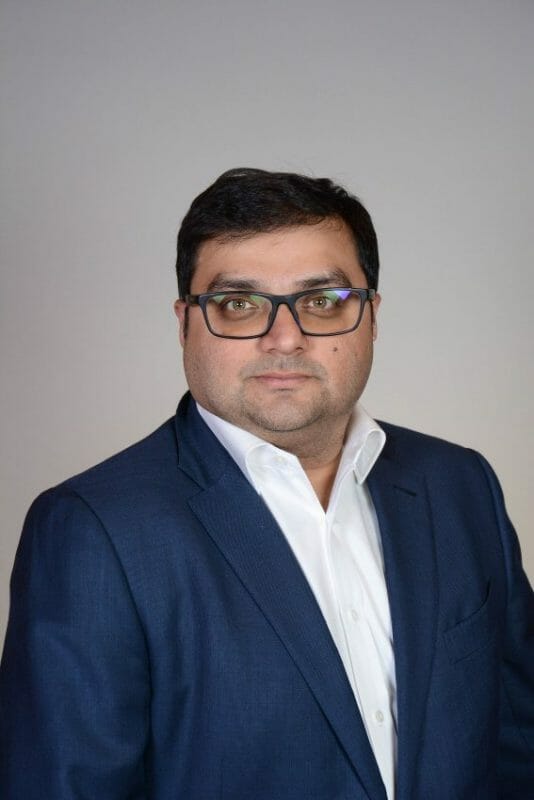The pharmaceutical landscape is rapidly advancing, propelled by innovative technologies and automated systems that are transforming drug production. Within this evolving sphere, integration of the latest automation and technology has become indispensable in enabling manufacturers to achieve new heights of excellence.
At Medivant Healthcare, we have been at the forefront of leveraging automation and technology across our pharmaceutical manufacturing operations. Through first-hand experience, we have witnessed the multifaceted benefits these innovations can offer in terms of enhanced quality, scalability, cost-effectiveness, safety, sustainability, and more.
In this article, we take a closer look at the key benefits of automation and technology in pharmaceutical manufacturing and how Medivant Healthcare harnesses these solutions to drive progress across our production facilities.
Precision and Consistency Drive Quality
One of the most vital advantages of automation in pharmaceutical production is the unprecedented level of precision it permits. Automated systems operate based on meticulously programmed algorithms that enable extraordinary accuracy and control. This precision ensures optimal consistency, with each drug dose meeting specifications exactly as required for safety and efficacy.
For patients, such consistency translates into reliability – they can trust in the medication’s performance each time. On the manufacturer’s end, this precision results in uniformly high-quality products that satisfy regulatory requirements. At Medivant Healthcare, our automated facilities exemplify this capability, repeatedly delivering exceptional quality at scale.
Scalability and Maximized Output
As global demand for pharmaceutical products surges, manufacturers’ ability to efficiently scale production has become critical. Automation enables truly flexible scalability, allowing for increased output without compromising on quality.
Medivant Healthcare’s automated lines can produce up to 10 million Single Dose liquid injectable vials annually. This high-volume capacity ensures we can meet growing demands and prevent shortages of essential medications. Automation, therefore, empowers us to reach more patients in need as we expand production.
Greater Sustainability and Resource Optimization
While the upfront investment in automation can be significant, the long-term cost savings are substantial. Automated equipment can operate 24/7, maximizing production hours and output. Reduced manual labor needs to cut associated costs. Waste is minimized, given the precision of automated processes.
In essence, automation optimizes the utilization of production resources. The technologies also support cleaner, greener processes by curbing waste generation and energy consumption. At Medivant, our automated factory’s small footprint and minimal waste footprint reflect our sustainability commitment.
Driving Quality Through Safety and Sterility
In pharmaceuticals, product quality is inextricably linked with safety and sterility assurance. Automated technologies play an invaluable role here. The highly controlled environments minimize risks of human error and contamination events.
Medivant Healthcare’s state-of-the-art manufacturing facility integrates automation, isolator technology, and RABS systems to ensure quality and safety. Our products undergo over 50 individual quality checks, with automated monitoring enabling rapid intervention for process deviations.
Unlocking the Power of Data
Modern automation systems incorporate advanced sensor technologies and data capture tools. This enables continuous monitoring and a wealth of data generation in real time. The data provides invaluable insights into overall equipment effectiveness, helping identify optimizations to quality, throughput, uptime, and more. Further, the data supports production trend analysis, deviation investigations, and preventive maintenance.
For Medivant Healthcare, the data serves as a vital resource for regulatory compliance, quality assurance, validations support, and informing future growth. As we continue adopting the latest technologies, data-driven capabilities will grow hand-in-hand.
Overcoming Drug Shortages
Access to essential medicines is an ongoing challenge, with drug shortages still occurring despite regulatory efforts. By enabling agile, high-volume production, automation can play a key role in tackling shortages.
Medivant Healthcare is addressing critical needs by leveraging our automated capacity to produce medications on the FDA Drug Shortages list. We are currently working to prevent shortages of essential injectable drugs, like lidocaine, bupivacaine, lidocaine with epinephrine, bupivacaine with epinephrine, ketamine and more.
Accelerating Research and Development
Beyond manufacturing, automation and advanced technologies provide a springboard for pharmaceutical research and development (R&D). The vast datasets generated offer insights into formulation characteristics, production parameters, quality specifications and more. Researchers can leverage this to inform the development of new therapies or the optimization of existing ones.
As a forward-looking company, Medivant Healthcare continuously explores emergent technologies that can unlock R&D potential. We actively collaborate with automation technology partners to maximize capabilities and progress.
Conclusion
The integration of automation and technology constitutes a new chapter in pharmaceutical manufacturing excellence. At Medivant Healthcare, we take pride in spearheading this transformation and harnessing these innovations holistically across our operations. The result is evident in our production of high-quality generic injectables to improve access for patients worldwide.
As we forge ahead in this landscape, we remain firmly committed to implementing cutting-edge automation to optimize all aspects of our manufacturing. Our embrace of the latest technologies will enable us to continue delivering exceptional quality, value and reliability to healthcare providers and patients globally.
Editor’s Note: Viraj Gandhi: In 2018, Viraj Gandhi founded Medivant Healthcare drawing upon his 25 vears of pharmaceutical manufacturing & sales experience. Viraj has been involved in helping build 3 pharmaceutical companies internationally in his career. Leveraging his vast experience, Viraj identified a unique opportunity to meet large scale demand for generic medications reliably, affordably, and efficiently by building a fully automated, state of the art manufacturing facility in Chandler, Arizona. Hailing from Mumbai, India, Viraj led the growth of Medicine Shoppe India in his home country, growing the company to be the second largest pharmacy chain in all of India under his tenure as CEO while managing over 1,200 employees.
